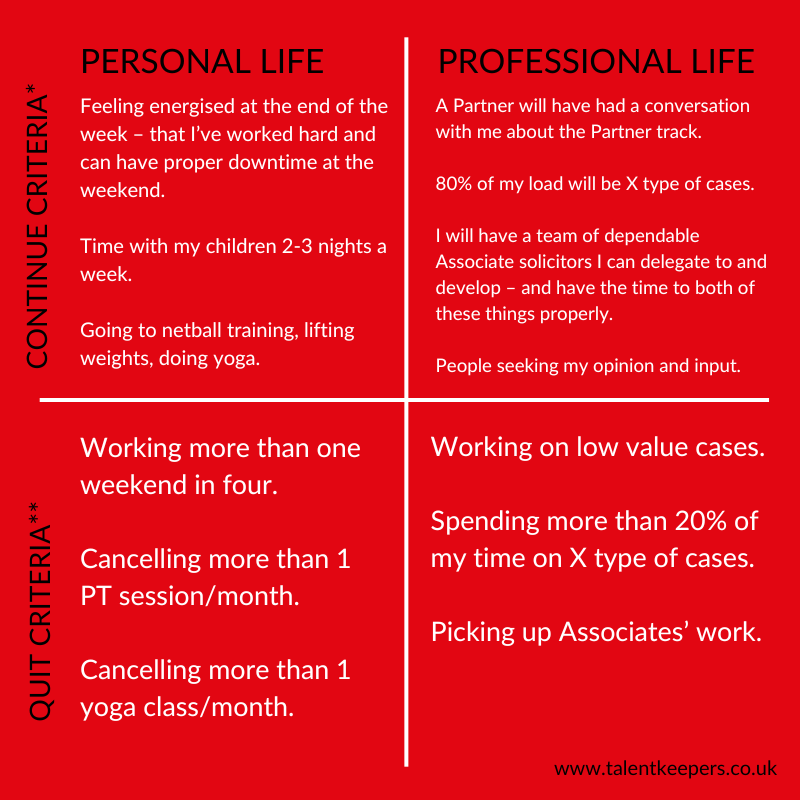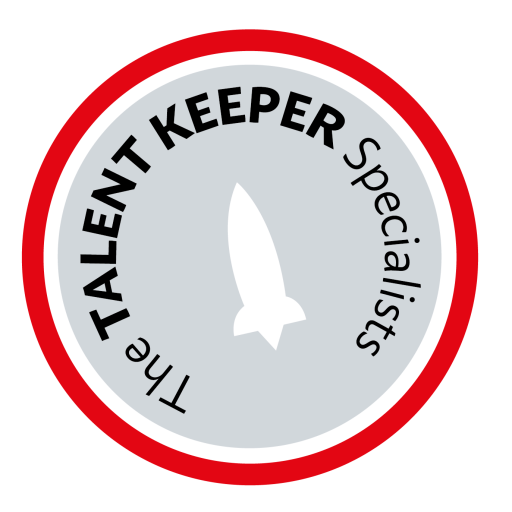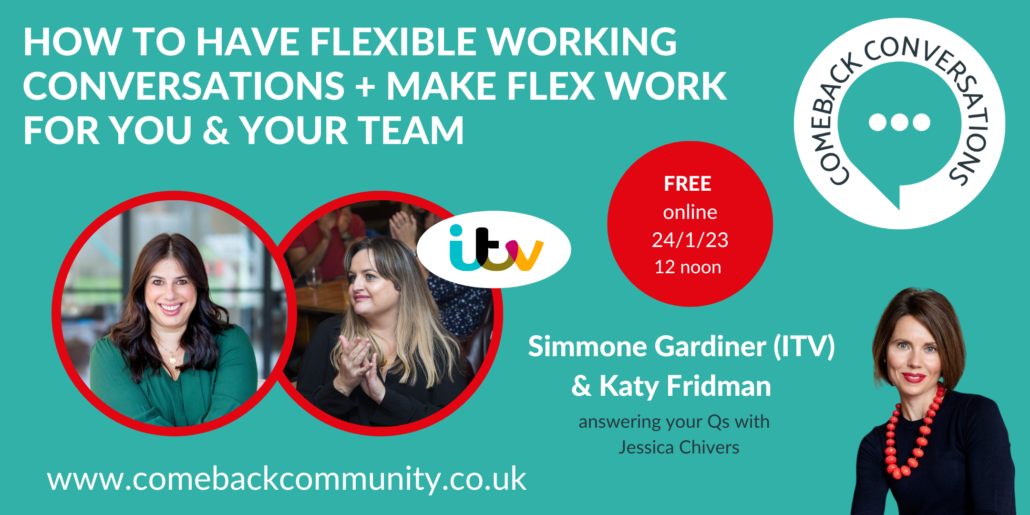Start your new job by considering your quit criteria
“What if I leave this job and hate the next one?”
This is a fear many of us have experienced in our careers when we’re in a job we don’t like. It’s one we work on with coachees.
Most of us would rather stay and keep hating our current job than risk moving to a new one and hating the new one just as much. Here’s the psychology at play: staying with the status quo is an act of omission (not doing something), rather than commission (doing something). Humans are much more comfortable living with the downside of not doing something than we are with actively making a change and regretting it. However, successful people quit.

Successful people quit
Remember that staying in a job we don’t like is a choice, just as much as actively moving to a new job is a choice. Both are associated with opportunity costs and both choices can be reversed. In the case of moving to a new job you can change jobs again, even if you can’t return to the role you left. Humans don’t like quitting because there’s a stigma attached to it. It’s associated with weakness and lack of grit.
But here’s the thing: successful people quit. For instance, professional poker players fold their hands (quit) significantly more than amateurs. See the work of decision strategist, Annie Duke[i] on this.
What will make you happier?
What we should be asking ourselves is: “What’s the likelihood I’ll be happier over the next six months if I change jobs versus staying in the one I’m in?”
When we think forward like this, we’re less likely to get trapped in the sunk cost fallacy which can stop us from moving into a new job. The sunk cost fallacy is the idea that a person, team or organisation is more likely to continue with something (such as your current job) if we’ve already invested a lot of money, time, or effort in it, even when continuing is not the best thing to do.
If this wasn’t your current job, would you choose it?
A question I love to ask coachees who are worried about making a change in their life is “If this wasn’t your current situation/job/home/relationship/insert whatever thing the coachee is wondering about, would you choose it?”
This question gets us to think about our status quo as being something we are actively choosing to continue with and have the power to change.
Start your new job by considering your quit criteria
So how does all this fit with why you should think about quitting a new job before you even start it?
We need to guard against the sunk cost fallacy and bias against quitting by considering what we need to get from a new job before we start it.
We can develop ‘quit criteria’ when we are at our most dispassionate and rational: BEFORE WE START THE JOB.
Identify continue/quit criteria for the impact on your personal life too
Identify the point in the future at which you are going to evaluate the new job. I think six months in is a good reflection point. Once you’ve done this, you’re ready to start thinking about your ‘continue/quit criteria’
We need to think about the impact of a job on our personal life as well as the quality of our experience in the job itself. That’s why I invite you to identify your quit and continue criteria on life outside work as well as inside.
A worked example of the possible QUIT/CONTINUE CRITERIA for a Senior Associate solicitor joining a new firm in the commercial team.

*If these things are happening, it’s an indication you should continue in the role.
**If these things are happening, it’s an indication you should quit.
Be accountable to a colleague
Tell a trusted past colleague[i] about your quit/continue criteria and the date you’re going to review. They can keep you accountable and help you reflect on how the job is measuring up against your criteria.[ii]
Is flexibility trapping you in your job?
On BBC Breakfast a few years ago, I talked about some women we coach coming back from maternity leave being ‘trapped talent’. Talented, skilled, ambitious people who stay in the job they’re in because they’ve moulded a level of flexibility that allows them to combine work and home in a satisfying (or at least not-too-hellish) way, that they are reluctant to give up.
They fear changing jobs (actually, changing line manager) will be too disruptive to their home life because they will have to earn trust and prove themselves before getting the flex they need to make their whole life work.
Changes to Flex Request Laws in UK
We think it’s brilliant that the UK Government is setting out plans to make the right to request flexible working available from day one of employment[iii] (removing the 26 week qualifying period). The date this will come into effect is to be announced. The plans were announced 5/12/22.
Flex Q&A with ITV HR
If you have questions about how to have flexible working conversations, join us 24/1/23 12 noon online. ITV People Manager Simmone Gardiner, Katy Fridman (founder of Flexible Working People) and Jessica Chivers are hosting a live focussed 45 minute live Q&A. BOOK NOW, it’s free. We’re delighted to count ITV as one of our long-standing clients. This session forms part of our Comeback Community employee experience for people returning to work after maternity and other periods of extended leave. When we have spar spots we open them to all. Find out more about Comeback Community here.
[i] Annie Duke is the author of Quit: The Power of Knowing When to Walk Away.
[ii] Probably best not to tell a new colleague about your quit/continue criteria in the early stages of your working relationship.
[iii] https://www.gov.uk/government/news/millions-of-britons-to-be-able-to-request-flexible-working-on-day-one-of-employment





Leave a Reply
Want to join the discussion?Feel free to contribute!